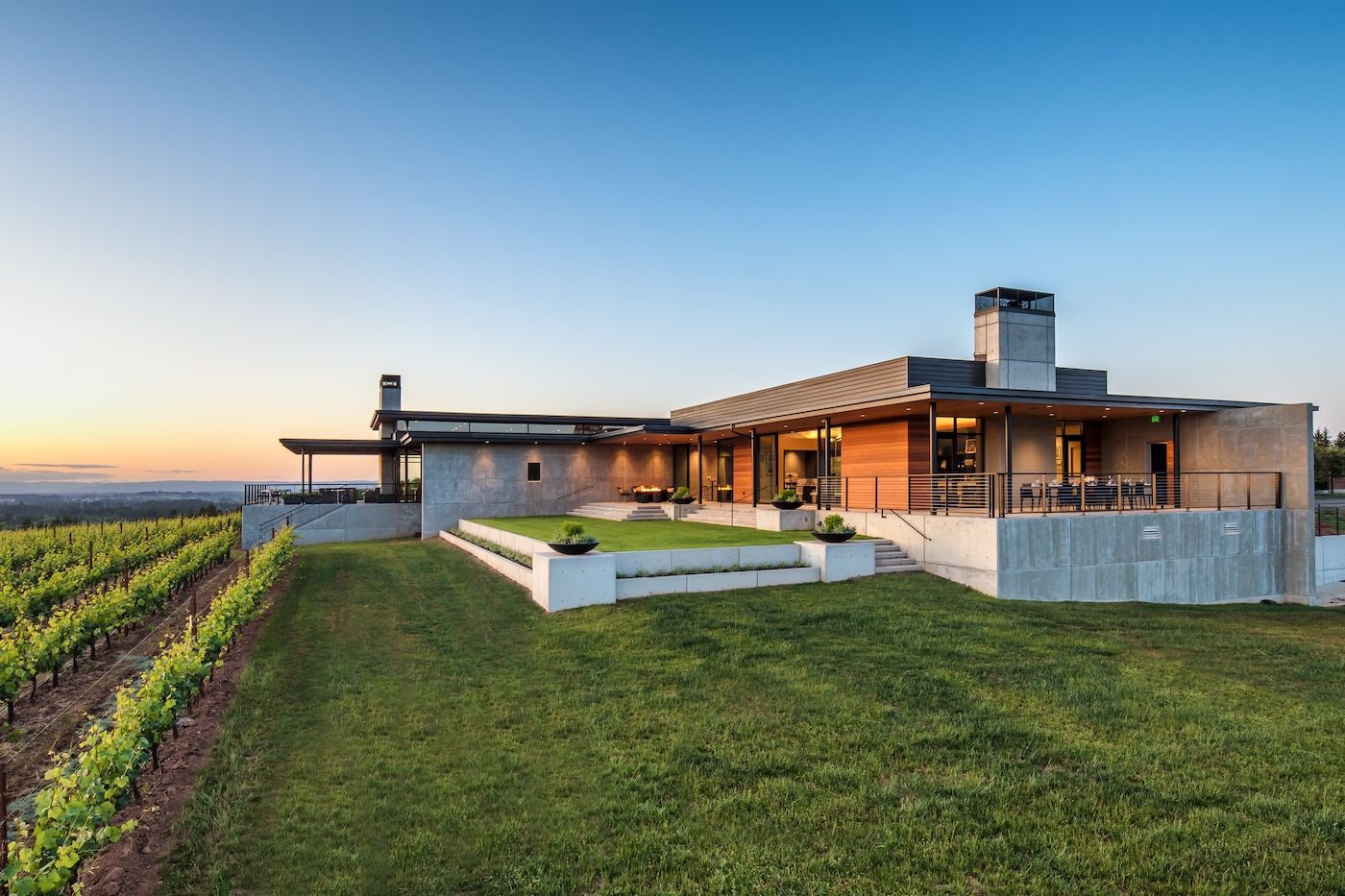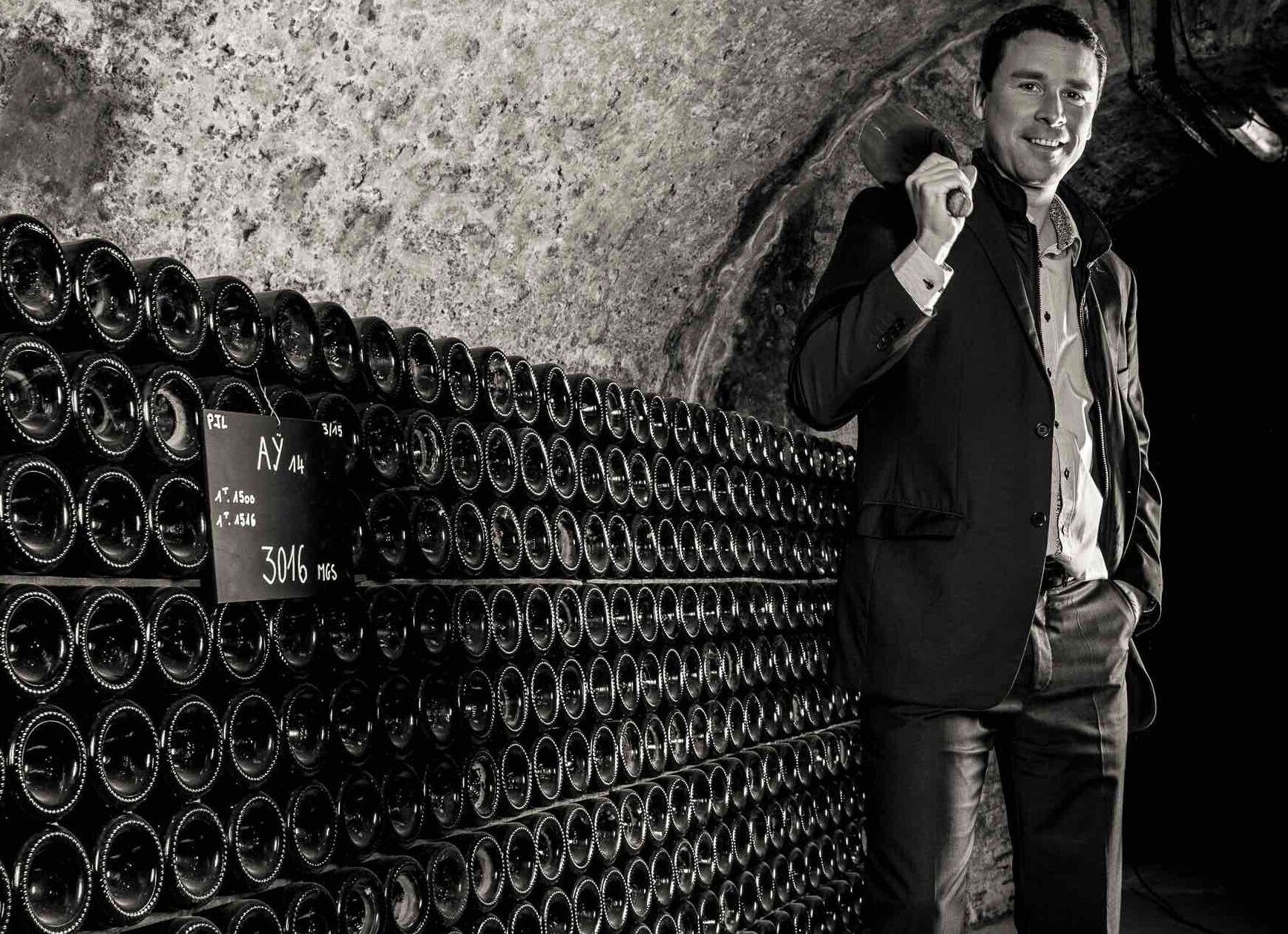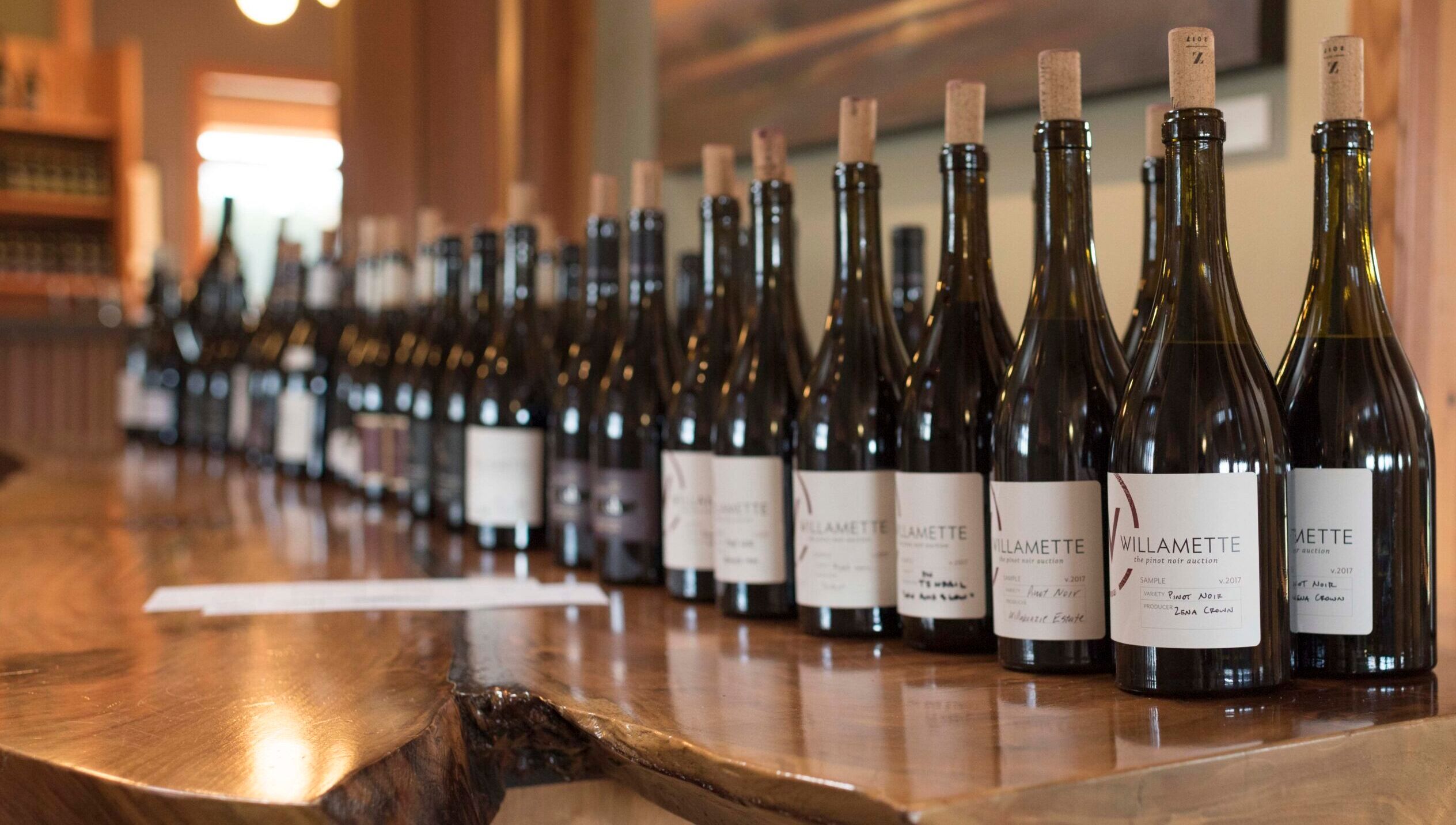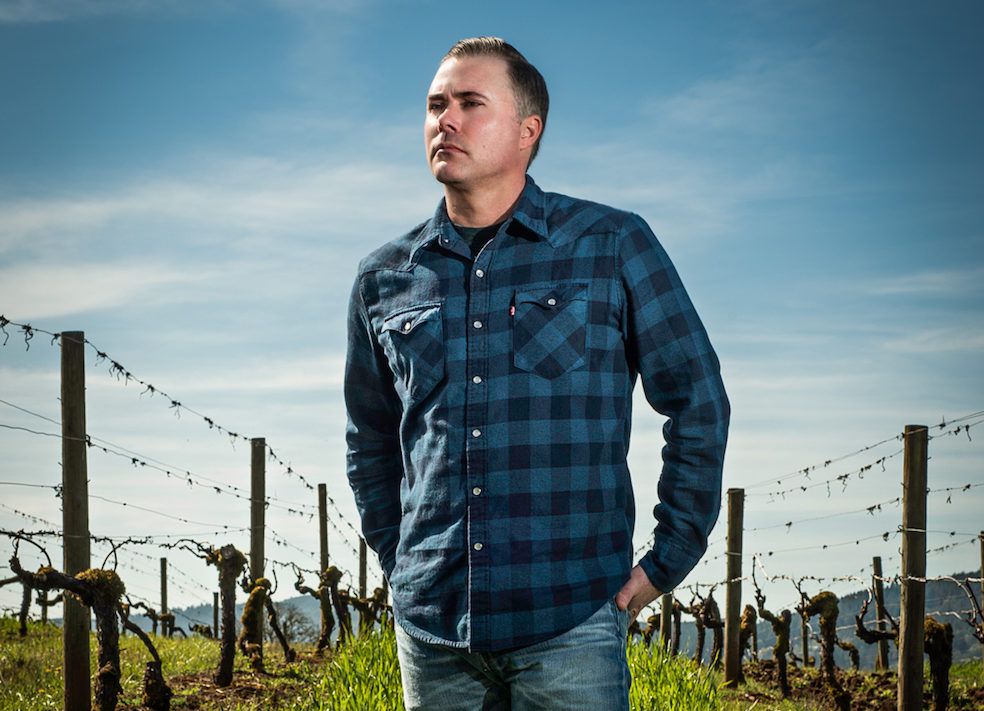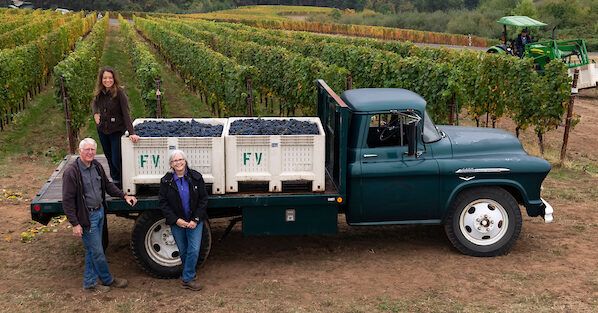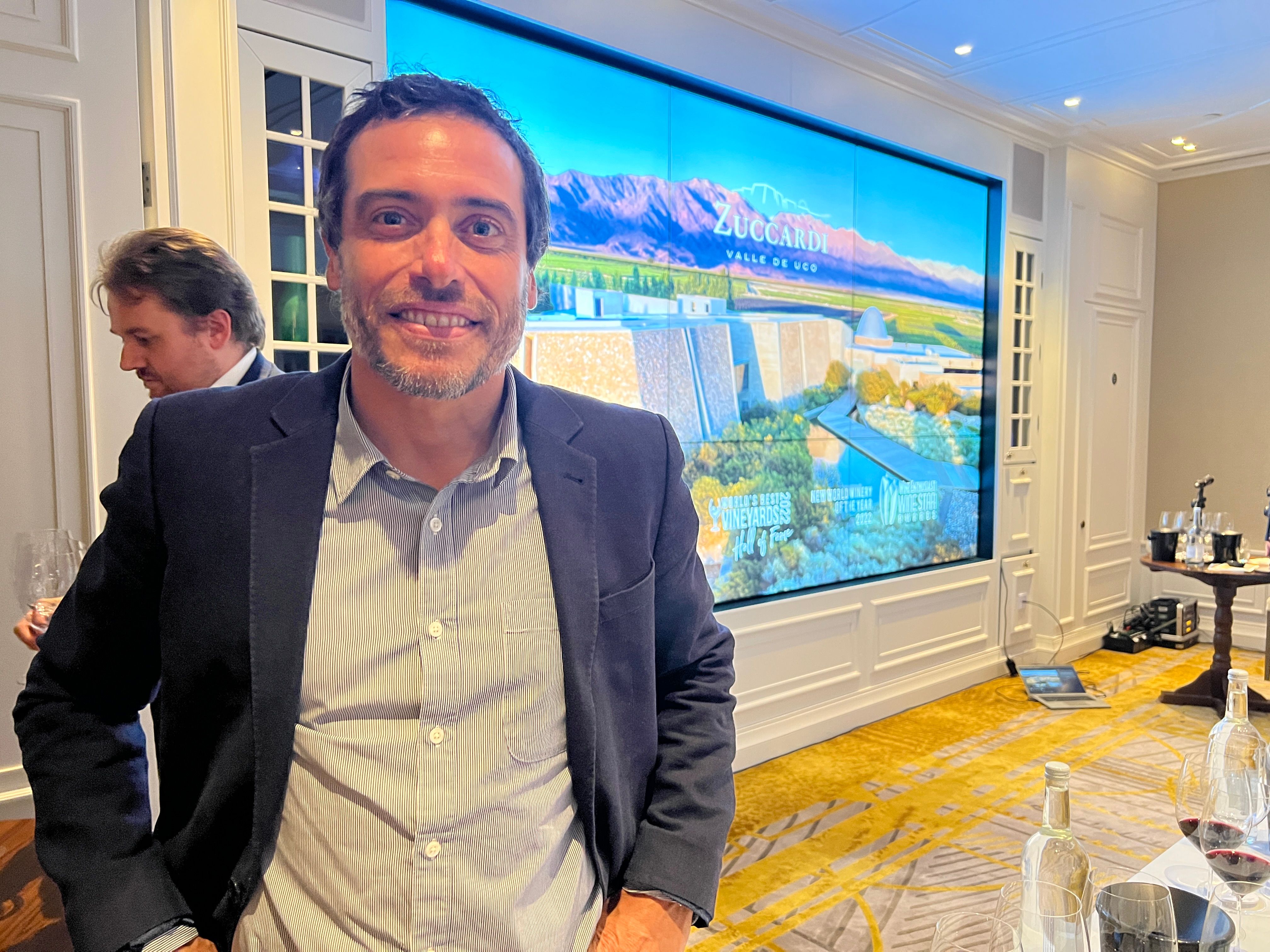It was in 1970 that Boeing engineer Dick Ponzi turned his back on a promising aeronautical career in California and led his family north to Oregon to grow grapes. The reason was two-fold – as a staunch anti-war protester Ponzi couldn’t live with his work being intrinsically linked to the Vietnam war; the second reason was a bottle of Burgundy. Or several.
Ponzi searched in vain for similar styles of ‘ethereal’ Old World Pinot to buy in California but couldn’t find any – this was a time when the winemaking philosophy was very different to where it is today and huge extraction was ubiquitous on the West Coast – so, with family contacts up in Oregon he headed North to find a place where he could replicate that Burgundian style.
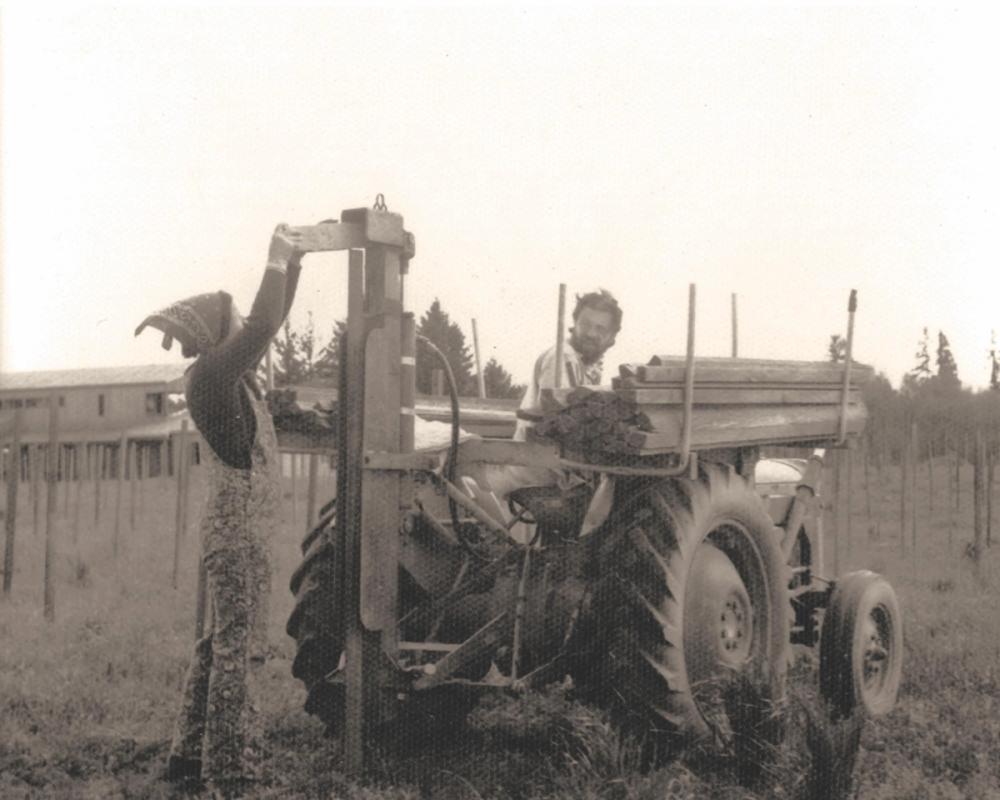
Dick and Nancy Ponzi planting the first vines in 1970
As such, Dick Ponzi was one of the ‘early 3’ pioneers in Oregon’s Willamette Valley, establishing Ponzi Vineyards in 1970 and starting what was to become years of experimentation with little success. Thankfully he persevered, not just for the countless Oregon winemakers who learnt their craft through him, but for wine lovers today who can tap into this fine range of elegant wines from the cool climate of America’s North-West.
Ponzi started with Chardonnay vines from California’s UC Davis but the stock was unsuited to the cooler climate; he also planted on every aspect when North and East-facing plots also made ripening difficult. Fortuitously, even when he sourced better-suited Dijon clones he didn’t grub up the old stock and kept the vines with the cooler orientation. As such, Ponzi owns some of the oldest vines in Willamette Valley and also on slopes that, given rising mean temperatures, now produce the finest fruit in the region.
Defining Willamette terroir
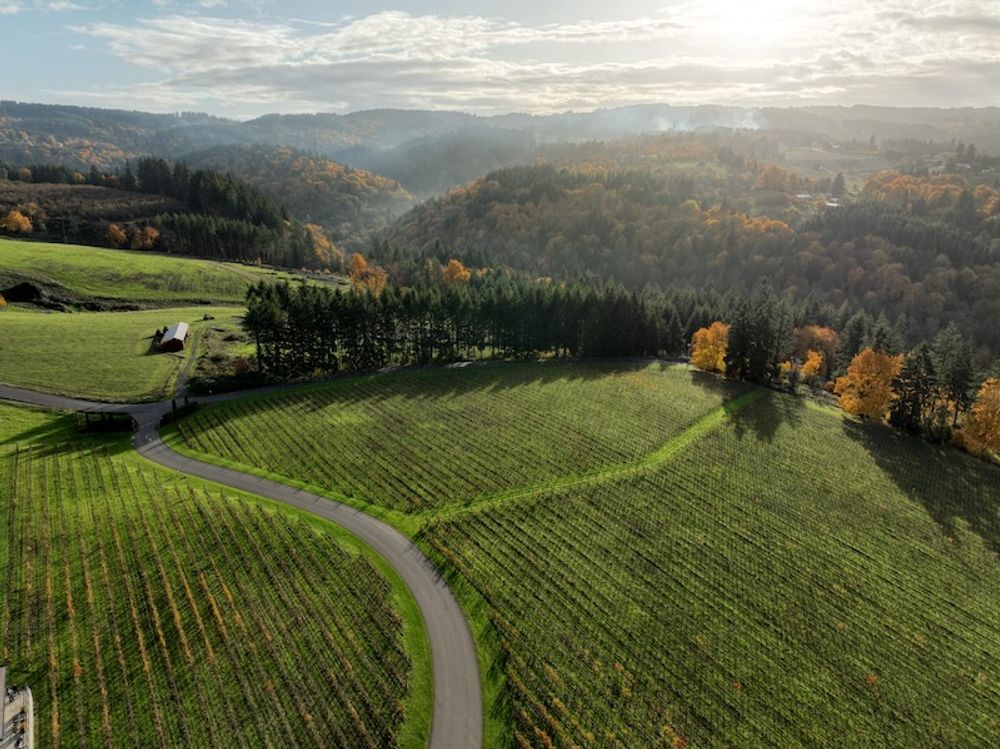
Avallana vineyard, where 100 adjacent acres have just been acquired
Ponzi always had high standards which was nowhere more apparent than when he helped establish the Willamette Valley AVA and develop the criteria for what constitutes a wine from this region. Compared to the more permissive Californian winemakers where percentages of varietal and designated area can be as little as 75%, Ponzi established that a Pinot Noir had to be at least 95% Pinot and the grapes had to be 100% sourced from the Valley.
“They had to be very precise and have a very high level of integrity to develop a new wine region that would be recognised as such,” says Ponzi CEO Jean-Baptiste Rivail, who explained how Ponzi was also a massive champion of Laurelwood District of which it is now the largest landowner.
Like all major wine regions, the soil structure here is complex and ancient but, in a nutshell, it is predominantly sandy loess laid over basalt, with the loess leading towards more fruit-driven wines and the basalt bringing more structure, minerality and complexity. The higher the vineyards are the thinner the loess layer becomes, the more the vines struggle and the ‘better the wine’.
Helping to define Ponzi's style
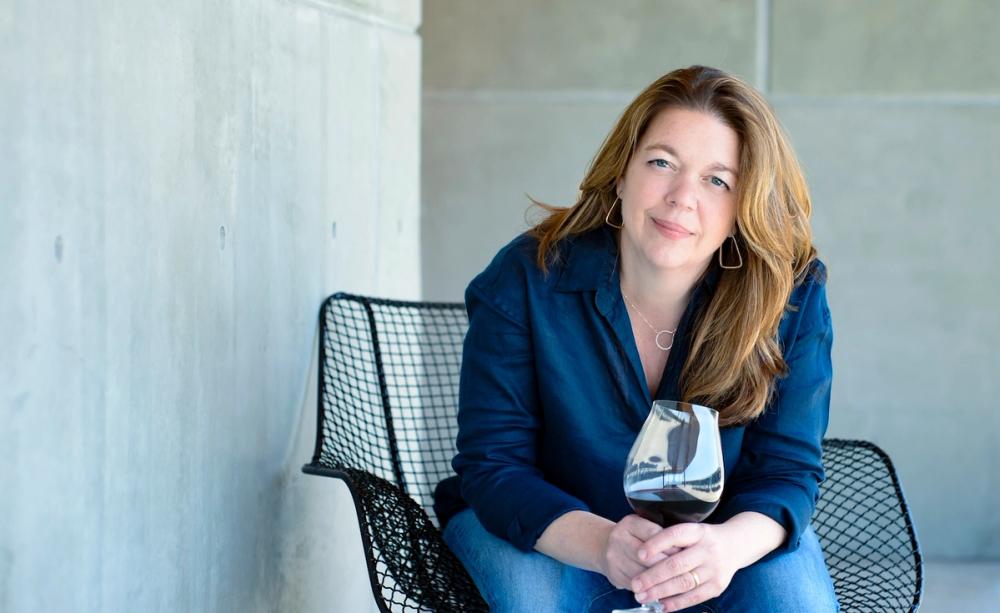
Learning with Roumier: Legacy winemaker Luisa Ponzi
Luisa Ponzi took over the winemaking reins from her father, having been the first non-French woman to gain a postgraduate degree from the CFPPA in Beaune and, while in Burgundy, also worked with legends such as Georges Roumier where she picked up the need to focus on the texture of a wine as much as aroma.
Since the Bollinger acquisition of Ponzi in 2021 Luisa has the slightly odd title of Legacy Winemaker while Max Bruening who joined Ponzi in 2015 is more hands-on day to day, although his style is very much ‘hands off’.
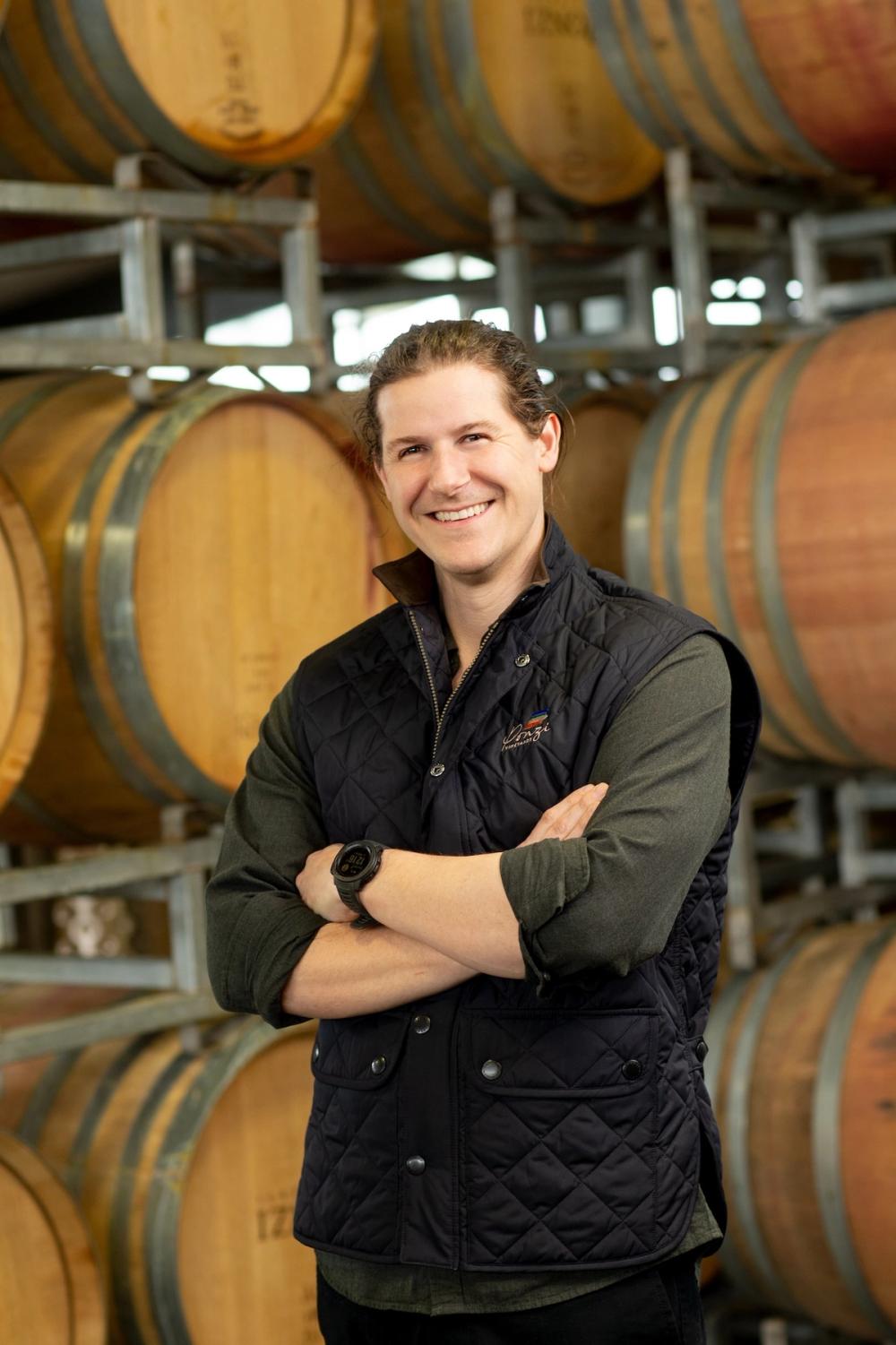
Not showcasing the coopers: Ponzi winemaker Max Bruening
“We are like sherpas guiding these wines to where they want to become,” he explains, “when things go wrong you had better have a strong skillset, obviously, as you only have one chance to nail it, to express where the wines are coming from. After all, the best wines are coming from the vineyard.”
Although the winery does have its fair share of technology, Bruening says that he opts for a transparent style, refined and ‘natural’ using 100% native yeast, kicking off spontaneously and farming as a certifed organic producer for the past three years.
“It’s important for us to showcase the fruit – the wine does have a bit of the winemaker but the wines should speak of what we are doing in the vineyard and not the barrel selection… we are not showcasing the coopers.”
As the estate starts a long-term planting programme of the 100 acres it has just acquired so Bruening is also trialling two different vineyards and vinifying in concrete.
“We’re trialling with concrete (ageing and also finishing in it after wood) to assess and learn how it operates but concrete has a great future at Ponzi in our winemaking – it brings a lot of tension and energy. Bollinger believes in innovation and experimentation.”
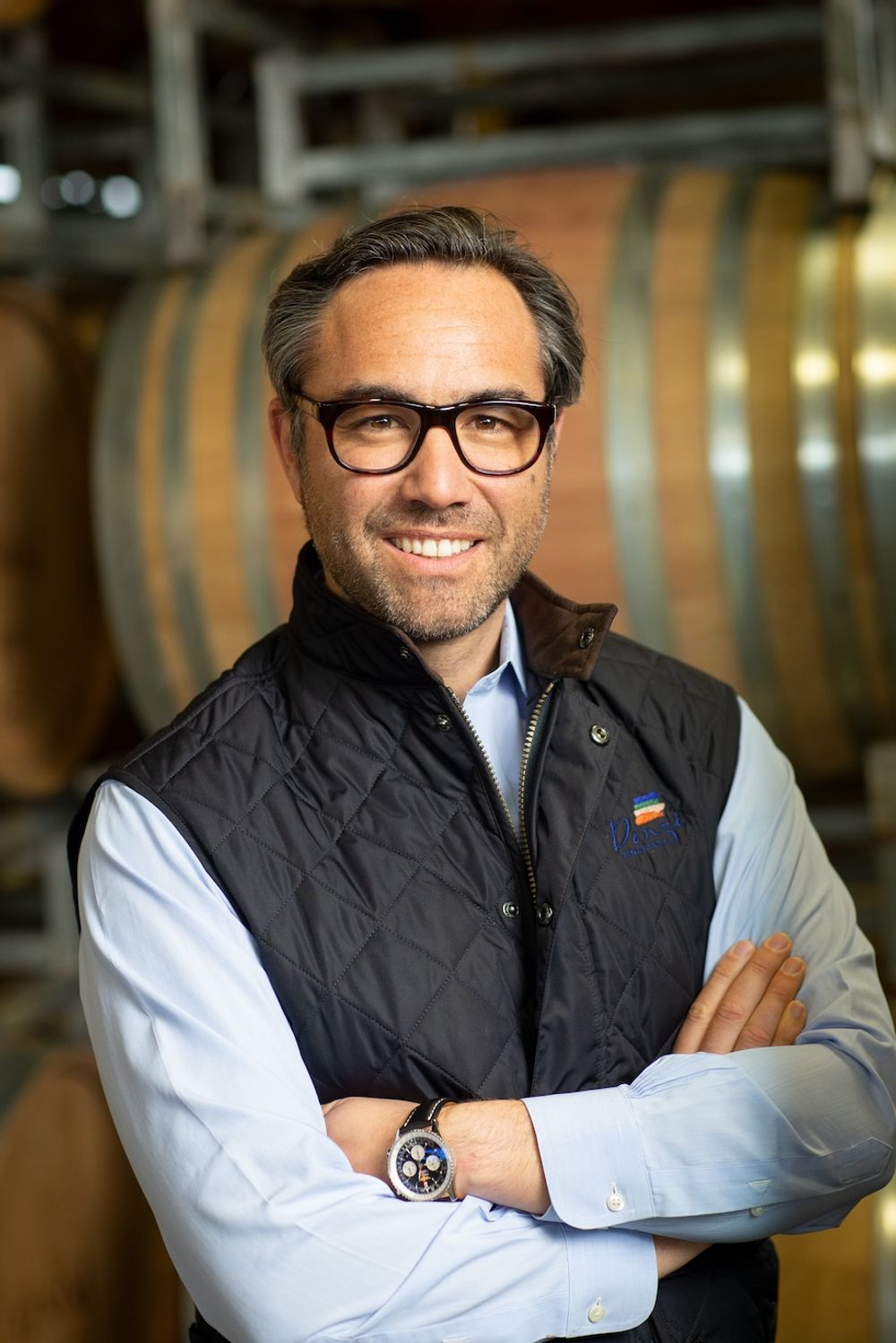
CEO Jean-Baptiste Rivail
Defining the estate’s winemaking style and also the wines’ branding and range were just some of the areas focused on by Jean-Baptiste Rivail who became CEO in May 2021 following Groupe Bollinger’s acquisition, the first property they had bought outside of France.
“Ponzi had never conceptualised their winemaking philosophy before,” says Rivail, whose previous roles had been at Chanson and Louis Vutton, “but it is variety of terroir expression, and wines that are vintage and terroir-centric – not imposing a winemaking vision.”
Prior to the acquisition Ponzi owned 140 acres of vine, with plantings mainly consisting of Pinot Noir, Chardonnay, Pinot Grigio (the first commercial Pinot Grigio in Oregon) and a few others such as Pinot Blanc. Since the acquisition it has recently acquired an extra 100 acres – an extension of the Avellana Vineyard – which it is planting out in two phases primarily with Pinot Noir.
Tasting the Ponzi wines
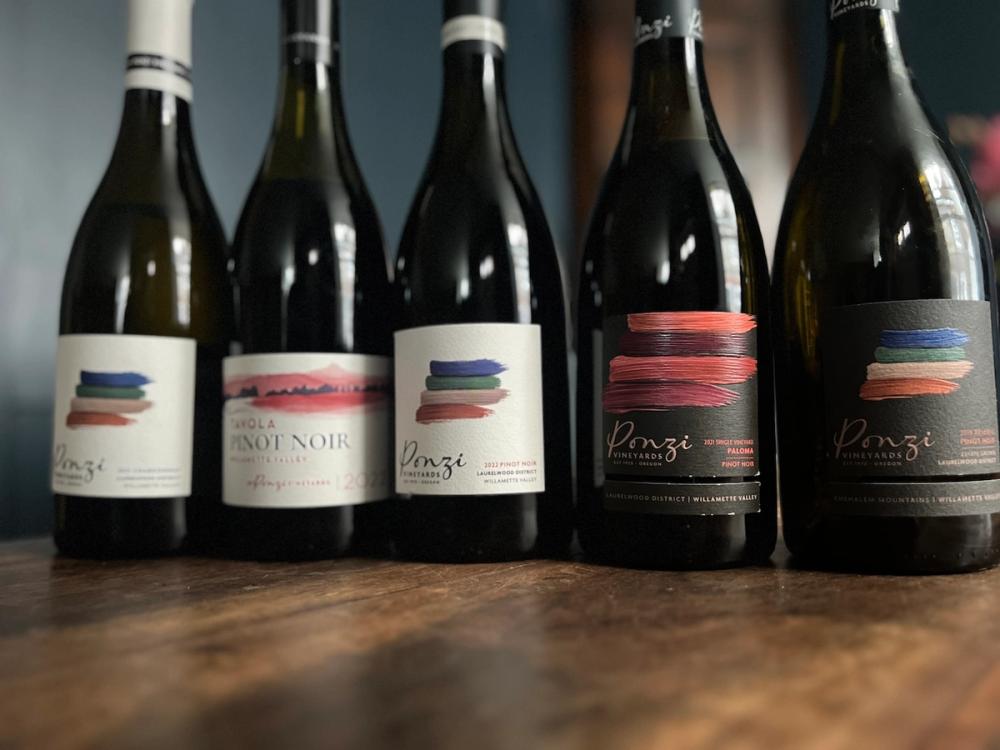
The paintbrush colours of the rebranding signify sky, forest, then the loam and basalt soils
We tasted five wines from three contrasting vintages – 2019, 2021 and 2022. 2020 was their ‘Voldemort vintage’ – “This is the one we don’t talk about,” says Bruening, as they didn’t make any wines because of smoke taint from the fires in the State.
What was impressive about the four Pinot Noirs was how they were a proper range – with quality matching price level, each wine offering gradually more heft, gravitas and complexity, reminding me of the March of Progress illustration!
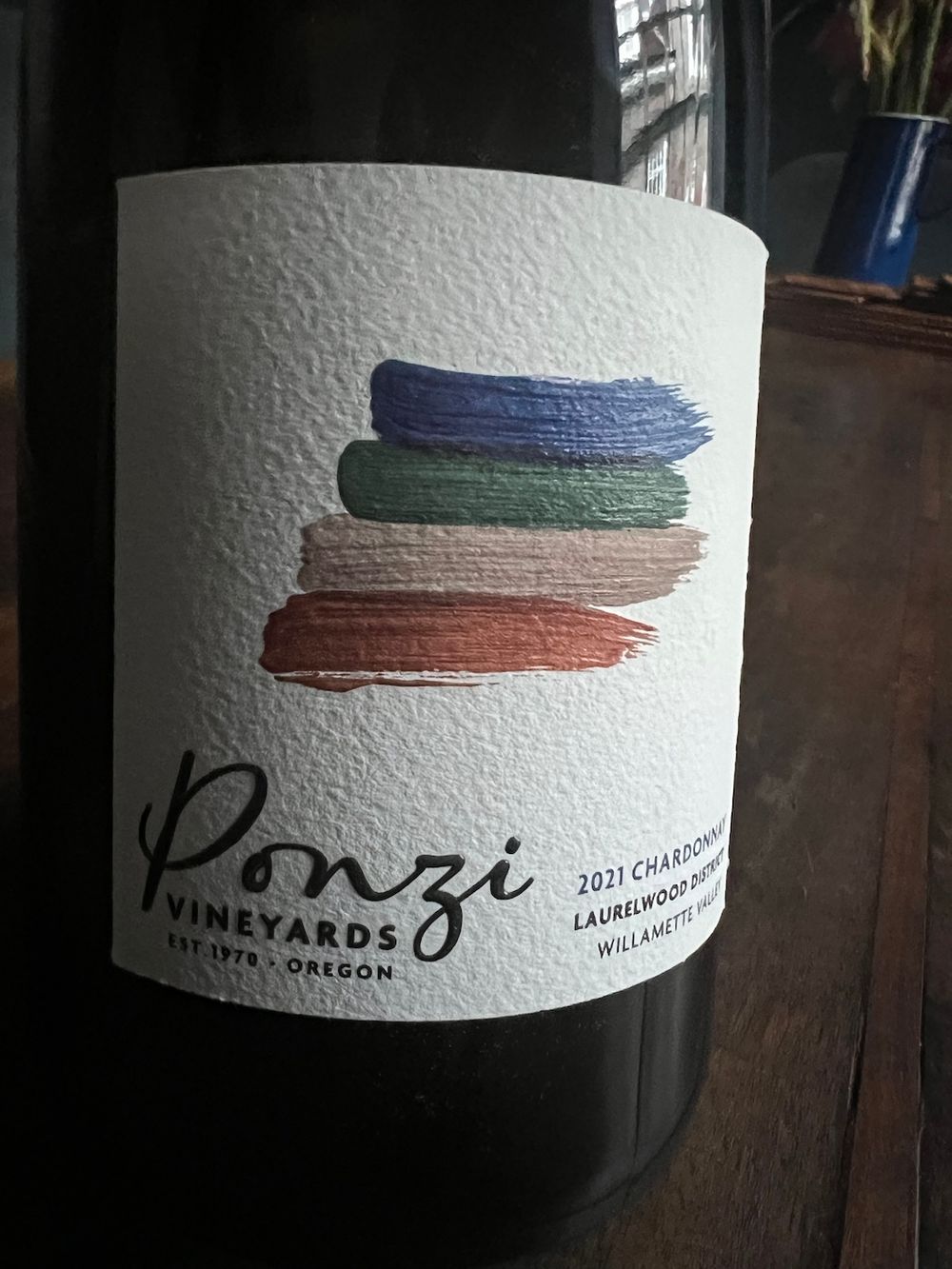
Laurelwood Chardonnay 2021 RRP: £40
This is Ponzi’s flagship Chardonnay which has come on since its early vintages where ripeness was an issue. With the introduction of Dijon clones many winemakers grubbed out old vines, but Ponzi left them in which are now some of the oldest in the valley with trialling continuing. This wine is a blend of the old vines and newer Dijon clones. 2021 was a vintage notable for two heat spikes that hit just into set and then just before vraison, thereby eliminating any disease pressures. Max Bruening described the harvest as “the cleanest fruit I have ever worked with.”
The quality of the vintage shines through in tasting the wine from the full, fruity and intense nose, through to the open, rounded mouthfeel with decent concentration. Lemon zest, mineral and a saline finish shine, a hint of anise on the nose, very tangy, good structure, nice balance and great length.
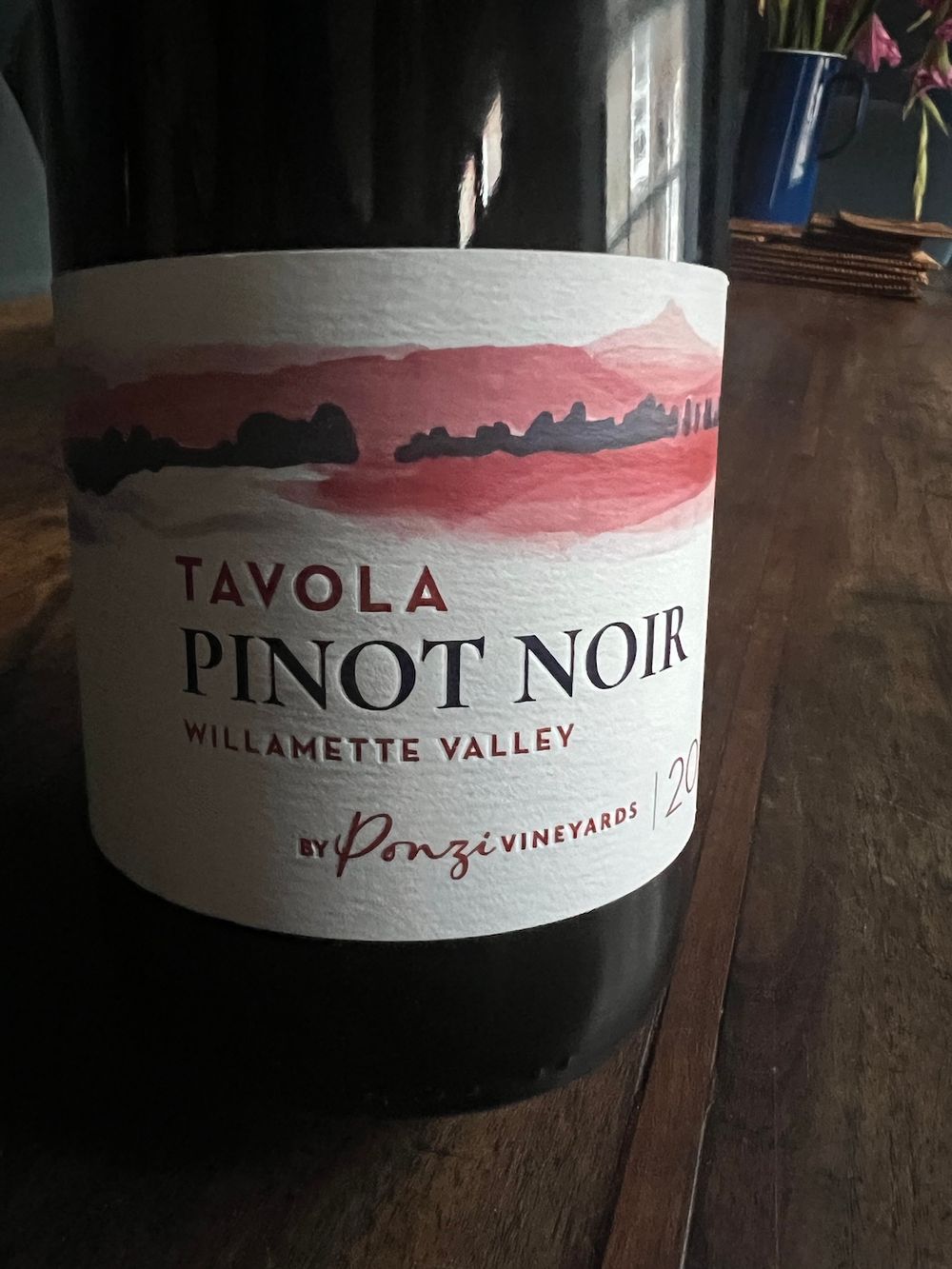
Tavola Pinot Noir 2022 (new vintage) RRP: £29.00
Described as Ponzi’s introduction to its Pinot Noir portfolio, this is 100% Pinot Noir sourced from various AVAs and intended to deliver a classic Willamette Valley Pinot – serious wine but at the same time crowd-pleasing and quaffable.
As a vintage 2022 had a late frost which came in towards end of April. “We had to figure out how to make wine from that – nature gave us a curve ball – and we had to learn how to hit it,” says Bruening. But, with a good second set and a bumper crop, the team got lucky again. 2022 was a late harvest (picking began in early October) but a year of very bright fruits.
Transparent ruby red, the wine is aromatically driven with a bright, lifted perfume of red berries and hibiscus flower, New World in its fruit concentration but not confected. In the mouth the wine is open, fresh, concentrated red berry fruit, touch of spice, crême de framboises but with a serious acid-driven motor under the hood that brings balance and begs another glug. Fun, easy-going and very approachable in youth.
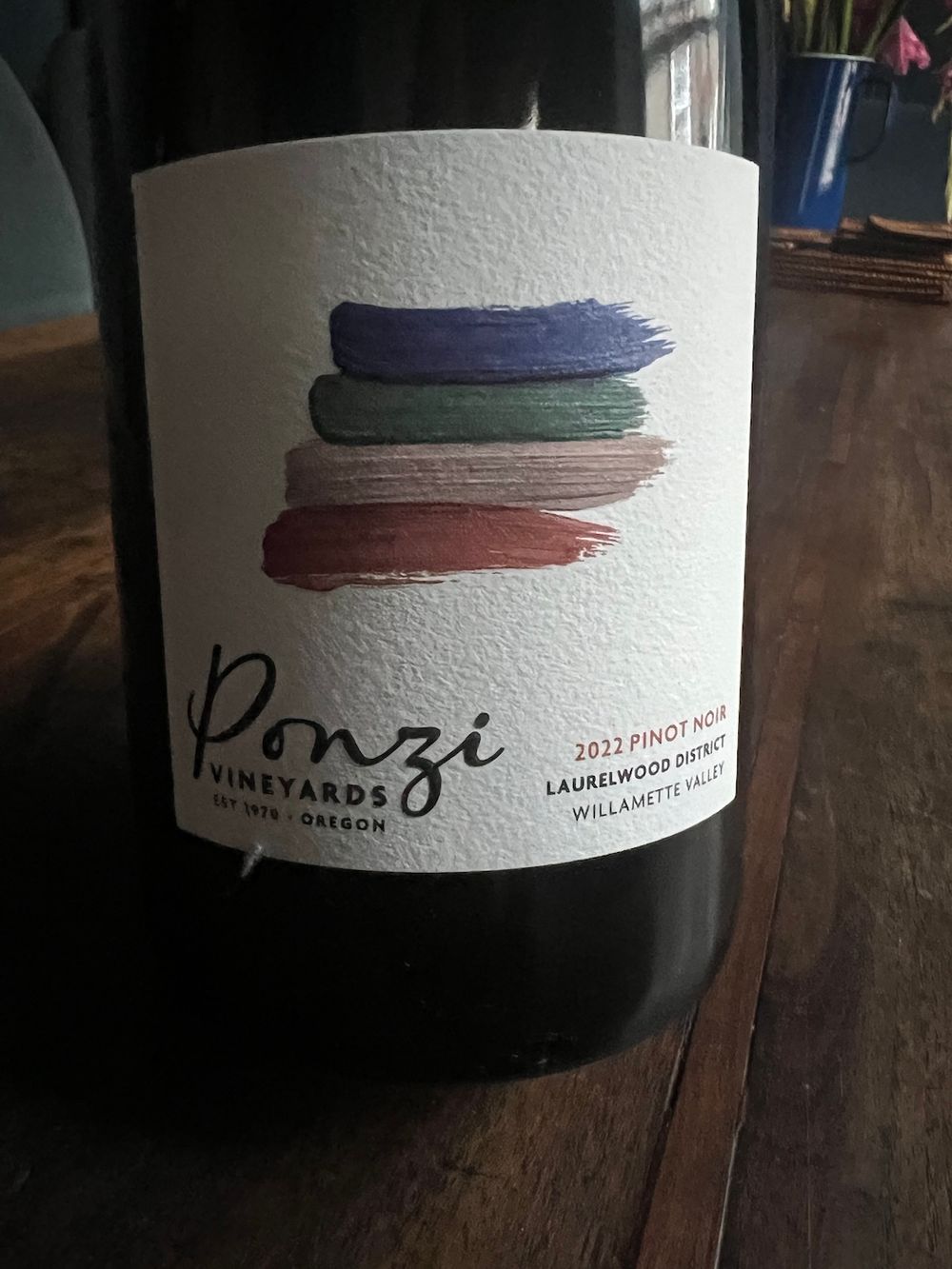
Laurelwood Pinot Noir 2022 (new vintage) RRP: £42
100% Laurelwood AVA Pinot Noir, domaine-owned fruit apart from some from two growers (using Ponzi vine stock). This is Ponzi’s flagship Pinot, the intention being to showcase the Laurelwood soil profile through younger vines – the roots mainly in loess (rather than the deeper basalt) – which gives a fruit-driven wine brimming with strawberries, raspberries, cranberry and spice (white pepper).
The nose has all of the above while the palate is open, fresh, fleshy but has a more serious structure with fine-boned, ripe, spicy tannins giving a wonderfully grainy texture to the core of the wine, framed as it is by ripe, noble fruit. Very impressive.
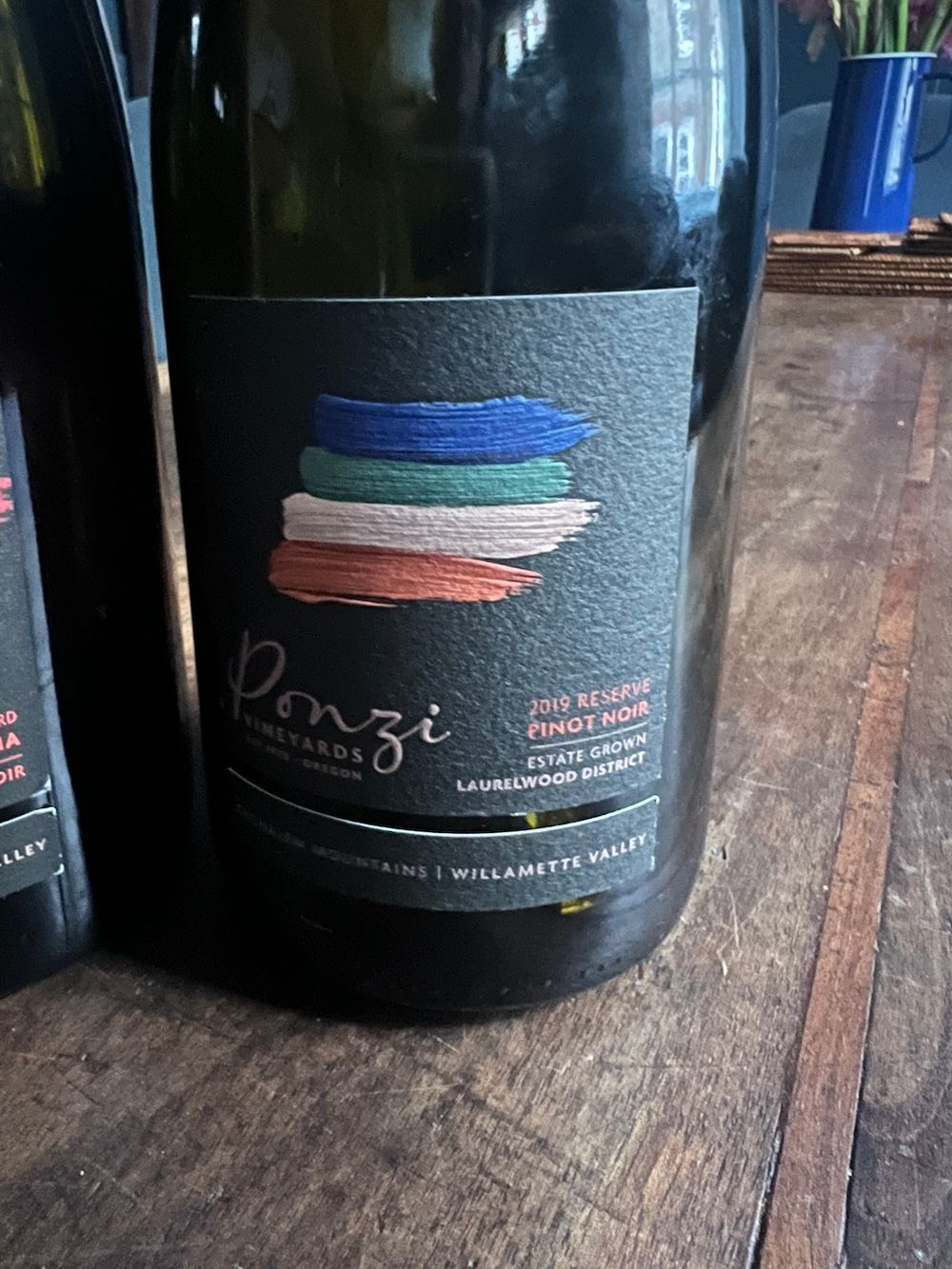
Reserve Pinot Noir 2019 RRP: £65.00
Bruening describes 2019 as a ‘throwback vintage’ in that “there was always some kind of pressure, something coming in unexpected, which gives it an edge and makes the winemaker think differently – such as picking decisions – which makes the wine vintage-expressive.” He also describes it as Dick Ponzi’s masterpiece.
The fruit is getting darker on the nose with baking spices, joining wafts of mulberry and black raspberry, cloves and nutmeg. The mouthfeel is open, soft, warm and welcoming with a polished tannin structure, a sappy quality, blueberry and blackberry. Much greater depth and layers of flavour. Outstanding quality and terrific value.
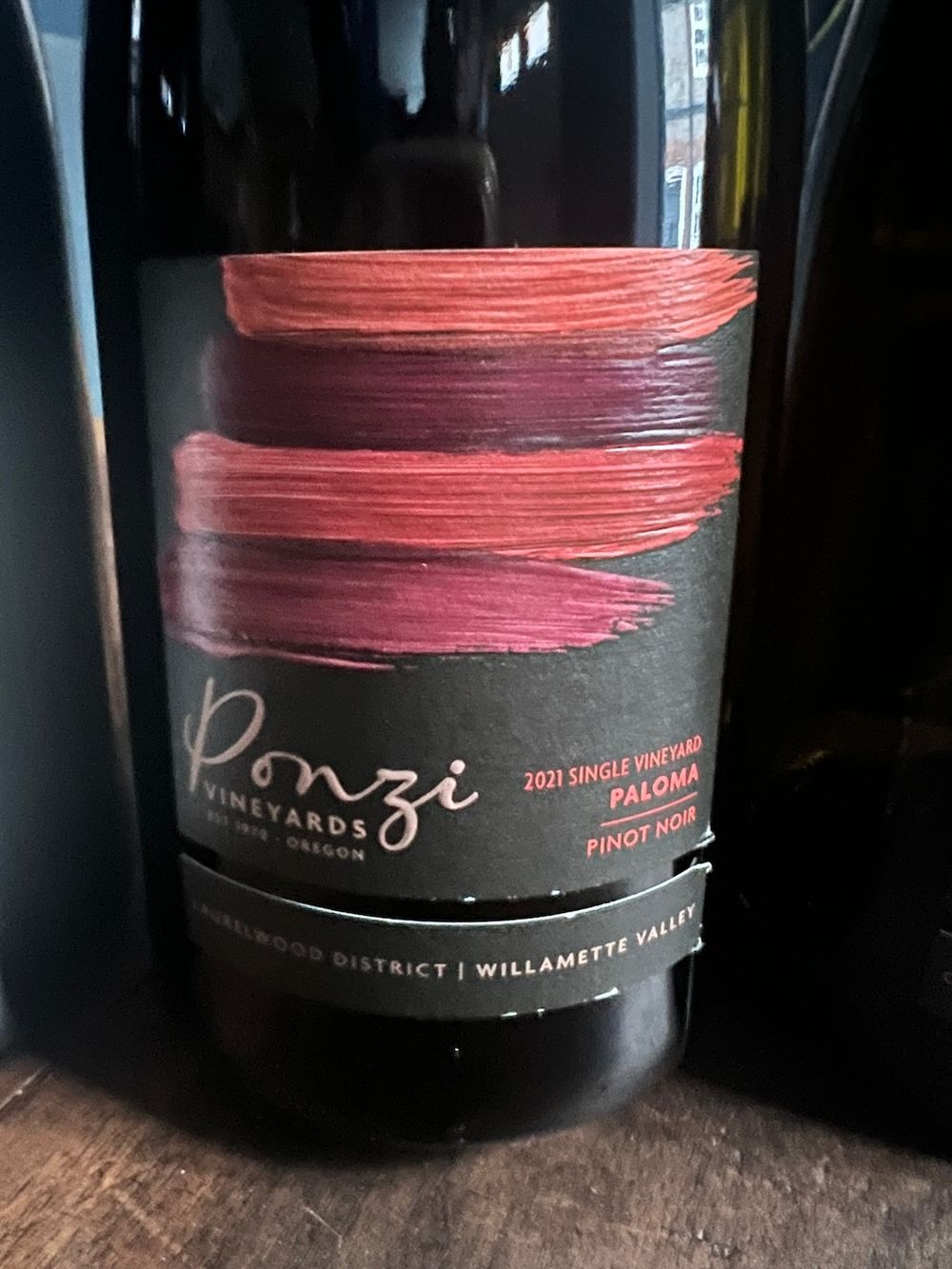
Paloma Pinot Noir 2021 RRP: £95.00
This single vineyard Pinot comes from relatively young vines, planted in 2014, at the highest point in the estate (900 feet) which sees the root stock reaching the basalt through the much thinner loess. What results is a wine with much more heft, intense aromatics featuring a ferrous quality over black fruit, which will get darker as years pass.
The palate has much more intensity, concentration and energy with the tannins grainier, more robust and apparent. At first the wine is rounded with silky mouthfeel, then the structure reveals itself looming like a rock in the fog. Serious and needing more time in the bottle.
The UK is the only country that is getting the Paloma – not even the US has it on the open market.
The wines of Ponzi Vineyards are sold and distributed in the UK through Mentzendorff which is a commercial partner of The Buyer. To discover more about them click here.
